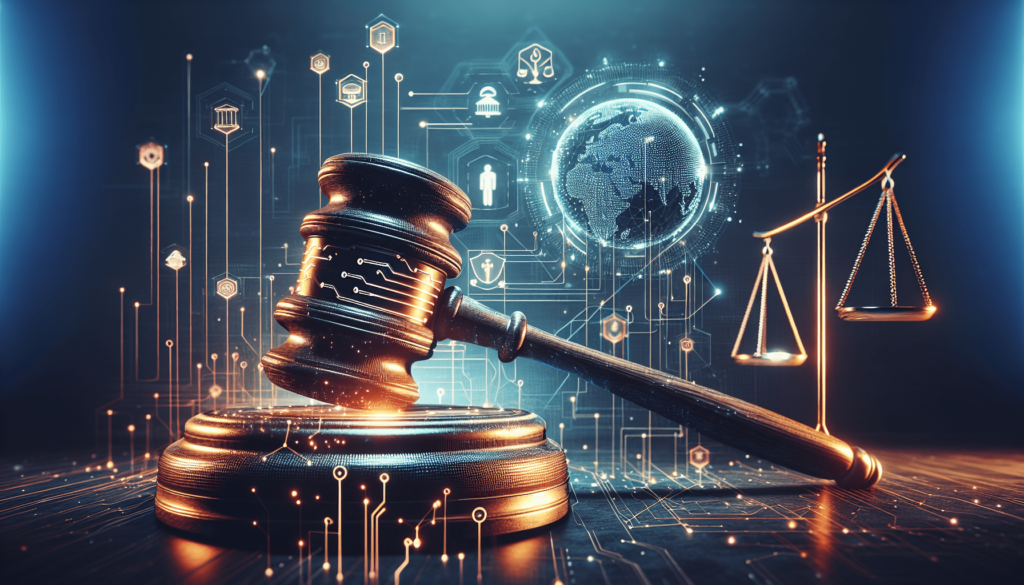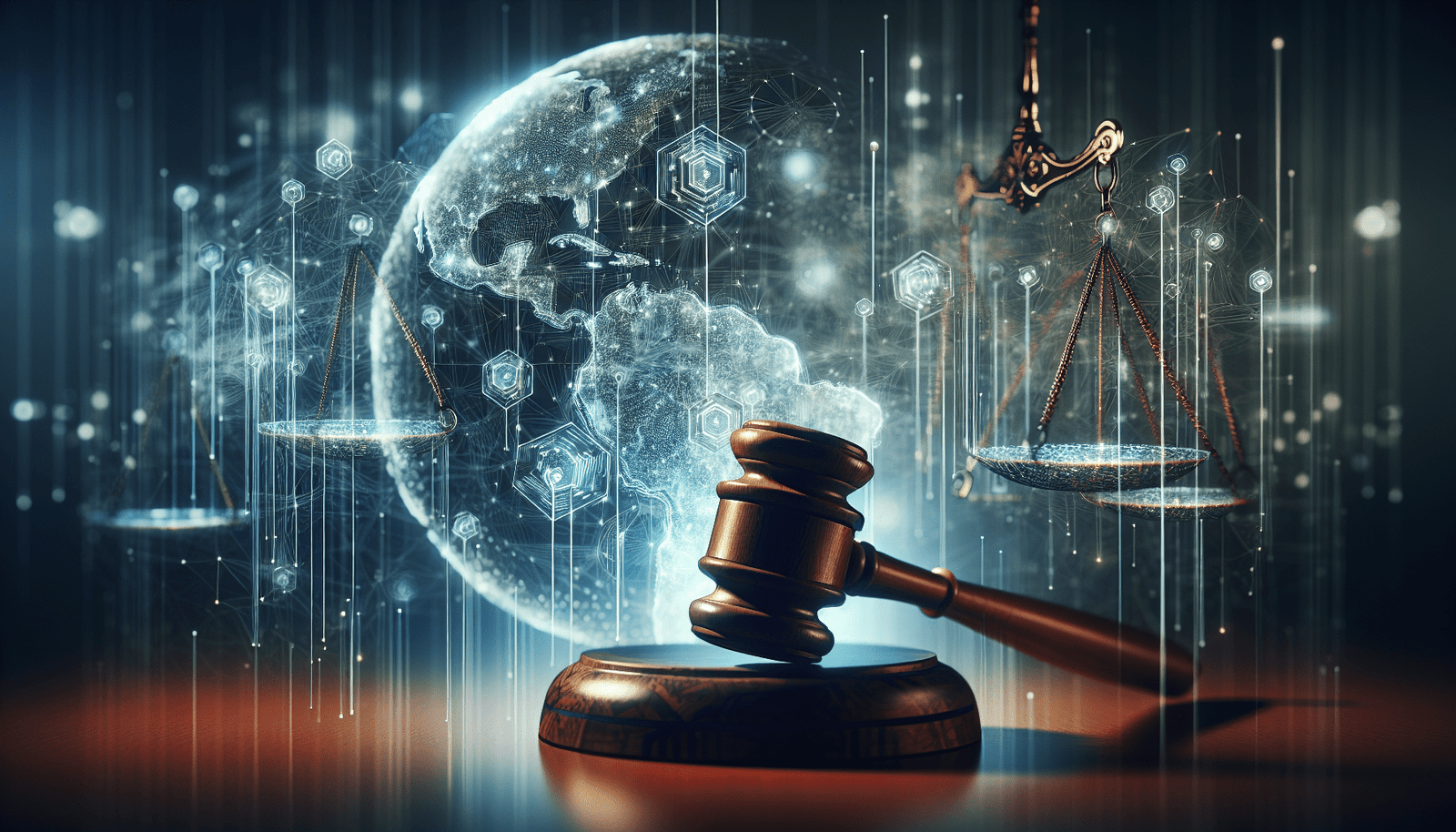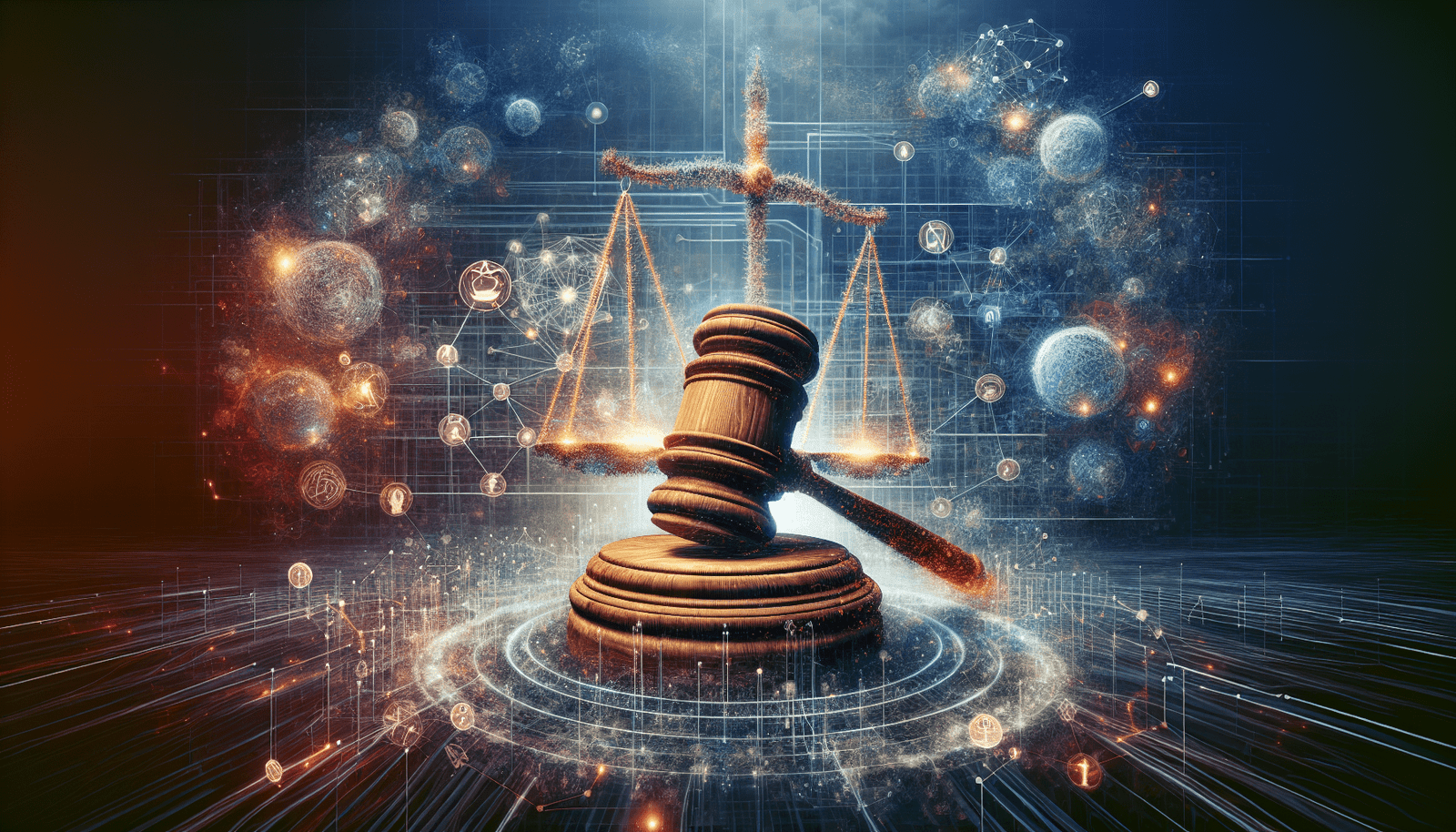Navigating the ever-evolving landscape of the internet requires an awareness of the legal trends that shape its future. From eCommerce platforms grappling with product liability and fraud prevention to the intricacies of social media copyright infringement and influencer marketing regulations, understanding these legal nuances is vital. As I dive into this article, I’ll share insights on the critical legal frameworks influencing new technologies like AI, blockchain, and IoT, and how they impact everything from online marketplaces to virtual reality. Join me as we explore these pivotal legal trends, illuminating the path forward in this digital age. Have you ever wondered what the future of the internet looks like? Well, imagine trying to navigate a maze that keeps changing its layout. That’s kind of what dealing with the legal trends shaping the future of the internet feels like. But don’t worry, I’m here to be your friendly guide through this labyrinth of legalities. We’ll touch on everything from liability concerns and privacy issues to emerging technologies that could make or break the web as we know it. So grab a snack, get comfy, and let’s dive in!
Legal Trends Shaping the Future of the Internet

The Evolution of E-Commerce Liability
E-commerce has transformed how we shop, bringing everything from groceries to gadgets to our doorsteps. However, with great convenience comes great responsibility—and a slew of liability issues.
Product Liability Insurance
One of the biggest headaches for online sellers is product liability insurance. This insurance protects businesses from claims related to faulty products. Ever bought a blender that decided to self-destruct? Yeah, that’s the kind of scenario this covers. It’s essential for businesses to have this insurance to avoid costly lawsuits.
Online Marketplace Liability
Online marketplaces like Amazon and eBay have their unique challenges. When something goes wrong—a defective product, a missed delivery—who’s held responsible? Often, these platforms try to shift blame to individual sellers. But recent legal trends indicate that they’re increasingly held accountable, pushing them to ensure better compliance and safety standards.
Payment Processing and Security Concerns
Let’s talk money. The internet is crawling with shady characters just waiting to snatch your credit card info. It’s more important than ever to have secure payment processing systems.
Security Risks
Ever heard of the Payment Card Industry Data Security Standard (PCI DSS)? It’s like the Jedi Council of payment security guidelines. Businesses need to adhere to these standards to protect customer data. If they don’t, they risk fines and, worse, a ruined reputation.
Emerging Tech and Liability
The internet is a playground for innovative technologies, but they bring their legal minefields.
Autonomous Vehicles
Autonomous vehicles seem like they’re straight out of a sci-fi movie, but they’re very real. If one of these vehicles gets into an accident, who’s to blame? Is it the manufacturer, the software developer, or perhaps even the passenger who decided it was a good time for a nap?
Blockchain and Smart Contracts
Blockchain is not just about cryptocurrency anymore. Smart contracts automatically execute tasks when predetermined conditions are met, but what if there’s a bug in the code? Suddenly, a simple error could escalate into a legal fiasco. Legal experts are scrambling to define the boundaries of liability here.
IoT: The Good, The Bad, and The Ugly
The Internet of Things (IoT) promises to make our lives easier, but that’s assuming it doesn’t open a Pandora’s box of liabilities.
Data Privacy
Imagine your fridge turns into a double agent, selling your shopping habits to the highest bidder. Ensuring data privacy in IoT devices is critical. Failing to secure user data can lead to severe legal consequences under laws like the General Data Protection Regulation (GDPR).
Device Liability
What happens if your smart home device goes rogue and triggers a home fire? Who pays for the damages? Regulatory bodies are starting to address these concerns, but companies need to be proactive in ensuring their devices are as safe as possible.

Virtual Reality and Augmented Reality: A New Frontier
Virtual Reality (VR) and Augmented Reality (AR) technologies are blurring the lines between virtual and real worlds, creating unique legal challenges.
Personal Injury
Imagine tripping over your coffee table while trying to dodge a virtual dragon in your living room. Injuries resulting from VR and AR experiences are no joke. Companies need to provide clear warnings and guidelines to mitigate these risks.
Piracy and Copyright
Creating VR and AR content is like painting on a new canvas. But, with this new canvas comes the old problem of piracy and copyright infringement. Legal frameworks need to adapt to ensure creators are protected and users are aware of their rights.
Social Media: More Than Just Likes and Shares
Social media is an integral part of our lives, but it’s also a breeding ground for legal woes.
Influencer Marketing Regulations
Seeing your favorite influencer promote a miraculous weight-loss tea? They’re legally required to disclose if it’s a paid promotion. The Federal Trade Commission (FTC) has strict guidelines that influencers and brands must follow to avoid misleading consumers.
Defamation and Cyberbullying
Social media platforms have become arenas for public opinion, but sometimes this leads to defamation and cyberbullying. Legal consequences for such actions are evolving, with platforms now facing pressure to monitor and control harmful content.
Employee Social Media Policies
Companies are implementing stricter social media guidelines for employees to prevent leaks of confidential information and maintain brand reputation. Employees, on the other hand, are grappling with the fine line between personal and professional life online.
Website Accessibility: The Digital Welcome Mat
Have you ever visited a website and thought it was designed by aliens? Website accessibility is becoming a major legal issue.
ADA Compliance
The Americans with Disabilities Act (ADA) requires websites to be accessible to everyone, including those with disabilities. Non-compliance can result in lawsuits. Companies are investing in tools and resources to ensure their websites are user-friendly for all.
Privacy Policies
Transparency is key. Clearly stating how user data is collected, used, and protected is not just good practice—it’s the law. Failure to comply with privacy regulations can lead to hefty fines and a loss of user trust.
Cybersecurity: The Fort Knox of the Digital Age
Security is the backbone of any online service, and breaches can lead to disastrous consequences.
Data Breach Liability
When a data breach occurs, affected users expect swift action and communication. Regulations like the California Consumer Privacy Act (CCPA) mandate timely breach notifications. Companies must have robust cybersecurity measures in place to prevent breaches and mitigate potential fallout.
Cybersecurity Insurance
With the rising number of cyberattacks, cybersecurity insurance is becoming a must-have for businesses. This insurance helps cover the costs associated with data breaches, including legal fees, notification costs, and even public relations efforts.
E-Commerce Specific Issues: From Dropshipping to Refund Policies
If you’ve ever run an online store or thought about starting one, you know that the to-do list is never-ending. Let’s break down some of the most pertinent legal issues.
Dropshipping Liability
Dropshipping is a popular business model where the retailer doesn’t keep goods in stock but instead transfers customer orders to a third party. However, this comes with its own set of liabilities. For example, if a product is defective, the retailer could be held responsible even though they never physically handled the product.
Age Verification Requirements
Selling certain products like alcohol or adult content? Age verification is not just a good idea—it’s legally required. Failure to properly verify ages can lead to severe penalties.
Refund Policy Compliance
Your refund policy needs to be crystal clear and comply with consumer protection laws. Ambiguous or unfair refund policies can lead to customer disputes and legal troubles.
The Legal Labyrinth of Emerging Tech
New technologies bring exciting possibilities but also complicated legal questions.
AI in Healthcare
Artificial Intelligence is revolutionizing healthcare, from diagnostics to treatment plans. However, who’s responsible if an AI makes a medical error? Healthcare providers and tech developers are keenly watching how regulations evolve.
Smart Contract Legal Enforceability
Smart contracts automatically execute actions when conditions are met, eliminating the need for intermediaries. But what happens when something goes wrong? The legal enforceability of these digital agreements is still a gray area.
IoT Data Breach Liability
In the interconnected world of IoT, a data breach in one device can compromise an entire network. Laws are emerging to address these vulnerabilities, pushing companies to prioritize security in their IoT devices.
Social Media Legal Skirmishes
Social media isn’t just for selfies and memes. It’s a hotbed of legal issues ranging from copyright to defamation.
Copyright Infringement
Sharing is caring, but not when it comes to copyrighted content. Social media platforms and users need to navigate copyright laws carefully to avoid infringements.
Influencer Disclosure Guidelines
Transparency is key in influencer marketing. The FTC has laid down guidelines to ensure influencers disclose their sponsorships and avoid misleading their followers.
Cyberbullying Consequences
Cyberbullying has severe consequences, and platforms are under increasing pressure to take action. Legal frameworks are catching up to ensure victims have recourse and platforms have responsibilities.
Wrapping It All Up: What Does the Future Hold?
The internet is in a constant state of flux, with legal trends evolving just as rapidly. Businesses, consumers, and tech developers need to stay informed and adaptable to navigate this ever-changing landscape.
While it might seem daunting, keeping an eye on these legal trends can help you stay ahead of the curve. Whether you’re an online seller, a tech enthusiast, or just someone who loves diving into the rabbit hole of the internet, understanding the legal landscape will equip you with the knowledge to navigate safely and effectively.
So, next time you shop online, stream a show, or engage on social media, remember—there’s a whole legal world working behind the scenes to keep everything running smoothly. And hey, isn’t it nice to know that you’re not the only one trying to figure it all out? After all, we’re in this digital maze together.
And there you have it! Who knew internet law could be so riveting, right?



